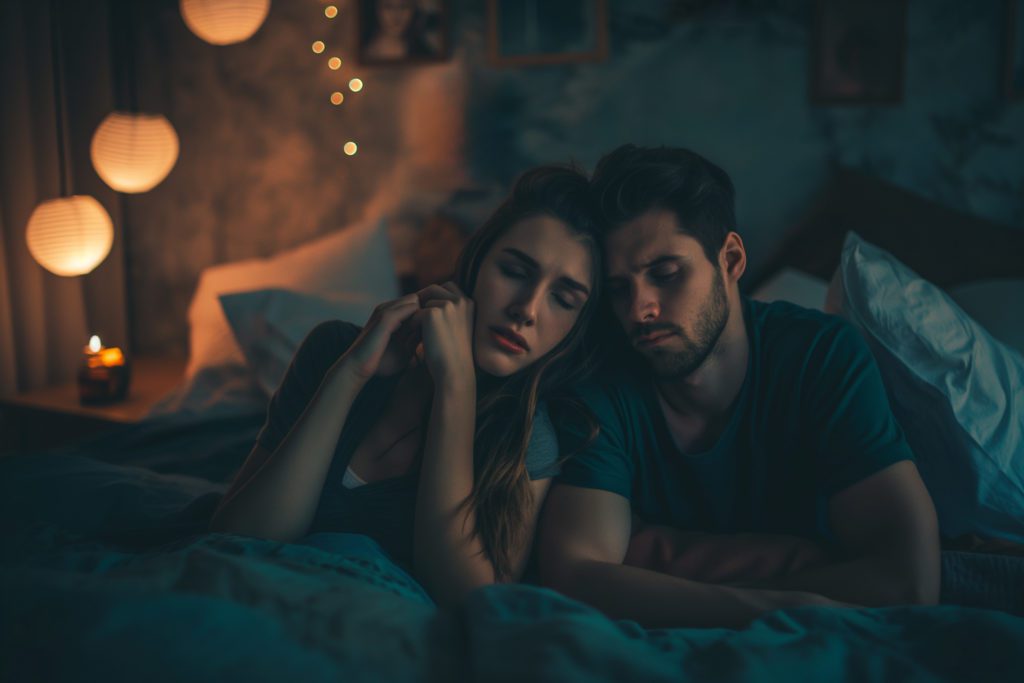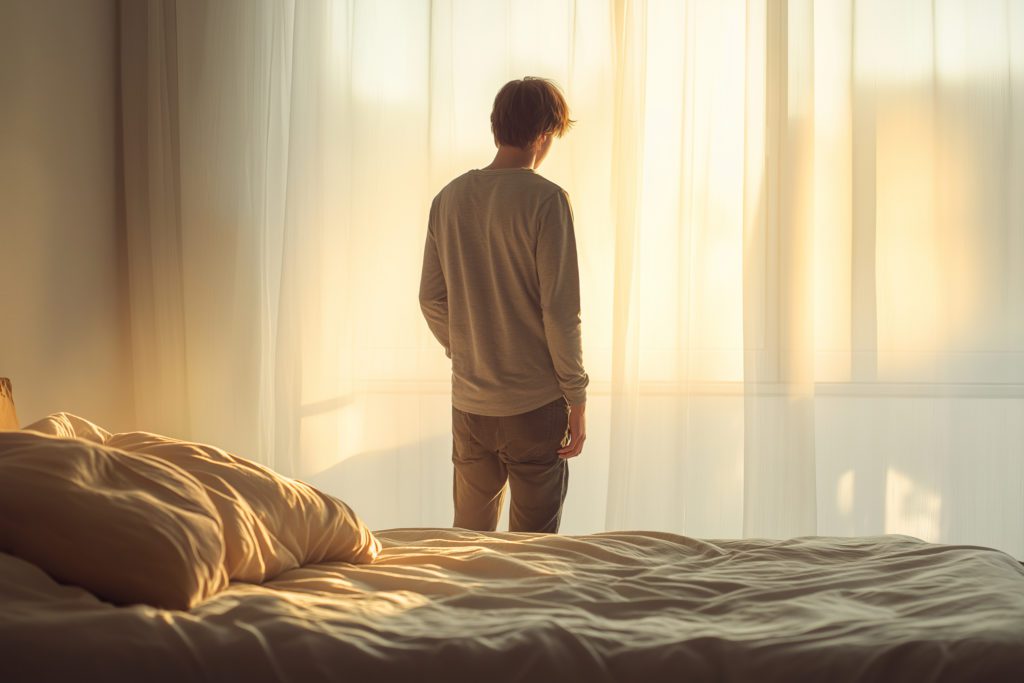
Understanding the Link Between Sleep Disorders and Increased Nighttime Urination
Nocturia refers to a need to urinate during the night. Learn about the causes of nocturia and how it can be linked to various sleep disorders.

Have you ever felt as though you spend more time each night going to the bathroom than sleeping?
Not only can it be frustrating to be forced to abandon your warm bed in order to attend to the increasing pressure in your bladder, but you may bump into objects in the dark, potentially injuring yourself as you trek to the bathroom. Yet another problem with nighttime urination is that the sleep disturbances can lessen your quality of sleep, leaving you tired in the morning.
While many of us want to connect nocturia to drinking too much before bed or brush it off as a by-product getting older, some cases of nighttime urination are connected to a sleep disorder.
What is Nocturia?
Nocturia refers to a need to get out of bed during the night to urinate. It is not a disease, but it can be a symptom of other conditions. Furthermore, it can have consequences affecting our sleep, including lower sleep duration and less time spent in deep sleep—the result of which can be excessive daytime sleepiness.
If you get out of bed to urinate one or more times during the night, you have nocturia. With this definition, many people have nocturia, but it doesn’t typically become bothersome until someone starts waking up two or more times during the night.
Of note, nocturia is not the same as bedwetting, also known as nocturnal enuresis. With nocturia, you wake up and recognize the need to urinate; with bedwetting, urination occurs involuntarily and without feeling as though you have a full bladder.
The three main causes of nocturia include producing excess urine at night, a decreased bladder capacity, and disruptions in sleep. Producing excess urine is the most common reason for nocturia, being the cause of an estimated 88% of cases. It is most often tied to diabetes, poor kidney function, excess fluid intake, or the consumption of diuretics (e.g., certain medicines, caffeine, alcohol).
While the focus of nocturia is often on how it can disrupt sleep, sleep problems, such as sleep disorders, may also provoke cases of nocturia.
The Link Between Sleep Disorders and Nocturia
The link between sleep disorders and nighttime urination boils down to one simple thing: sleep disruptions.
Sleep disruptions have been shown to be a major factor provoking cases of nighttime urination, and sleep disorders are notorious for disrupting your sleep.
Take obstructive sleep apnea (OSA), which causes episodes of stopped breathing during the night because of obstructed airways. OSA causes a repeated reduction in airflow and oxygen levels, which influences your hormones in a way that increases urine production. Additionally, those with OSA wake up frequently during the night, affording more opportunities for them to notice a need to urinate.
As for how common nocturia is with OSA, it’s estimated that nighttime urination occurs in about half of those with OSA. In good news, research has shown that treating obstructive sleep apnea helps to reduce nighttime urination, so it is not a permanent affliction.
Yet another sleep disorder tied to nocturia is insomnia. While it’s most commonly associated with an inability to fall asleep, insomnia also covers any difficulty staying asleep, which is where nocturia fits in.
While insomnia does not cause urine production to increase, it can cause you to wake up during the night, where you may then perceive a full bladder and leave the bed to urinate. So, while insomnia does not cause the full bladder, it can awaken you, placing you in a situation where you cannot fall back asleep until you address your full bladder.
Along these lines, any sleep disorder that causes you to wake up during the night, such as parasomnias or restless leg syndrome, may also lead to nocturia since you then have the opportunity to feel a full bladder.
Tips for Managing Nocturia
There are many possible causes of nocturia, including increased urine production from drinking excess fluids before bed, aging, or using diuretics (medications that increase urine production), or a smaller bladder capacity, which may result from a bladder or urinary tract infection. Sleep disorders, as well, can cause you to wake up during the night, making a full bladder more obvious.
To manage nocturia and sleep better, try these tips:
- Treat the underlying condition. If an underlying condition such as sleep apnea or a UTI is behind the nocturia, treating the condition can help reduce the number of trips you take to the bathroom at night.
- Drink less before bed. As the most obvious cause and effect, the more you drink, the more you will have to urinate. As such, try to reduce the amount you drink at night, especially before bed. To help even more, try to avoid alcohol and caffeine in the afternoon and evening because they can increase urine production even more.
- Elevate your legs. Elevating your legs for at least an hour before bed (although longer won’t hurt) can help to reduce the resorption and conversion of peripheral edema into urine while you’re asleep.
- Improve your sleep hygiene. Some cases of nocturia aren’t from increased urine production but because you wake during the night. Improve your sleep hygiene to sleep through the night better—keep a consistent sleep schedule and bedtime routine, get some exercise each day, make your bed comfortable, keep your bedroom dark, cool, and quiet, and avoid electronics before bed.
Even with these tips, you may find that while you can reduce the number of nighttime trips you take to the bathroom, you’re still unable to go the whole night without a visit. In these cases, be sure to install some safety features to ensure you’re safe as you travel to the bathroom.
Motion-activated lights, even dim ones, can help you walk to and from the bathroom safely. Additionally, be sure to keep the path to the bathroom clear so that you don’t have to worry about tripping on any rugs or cords while it is dark and your mind is still grasped by sleep.
Ultimately, whatever you can do to limit the number of times you wake during the night will improve your sleep significantly and leave you feeling more well-rested in the morning.

Written by
Jessica G
Medical writer freelancer who has written hundreds of articles on varying topics. Masters of Engineering degree in Biomedical Engineering.
Download Pillow
Get help
Press & News
Legal
Connect
X (Twitter)
Company
Copyright © Neybox Digital Ltd.



